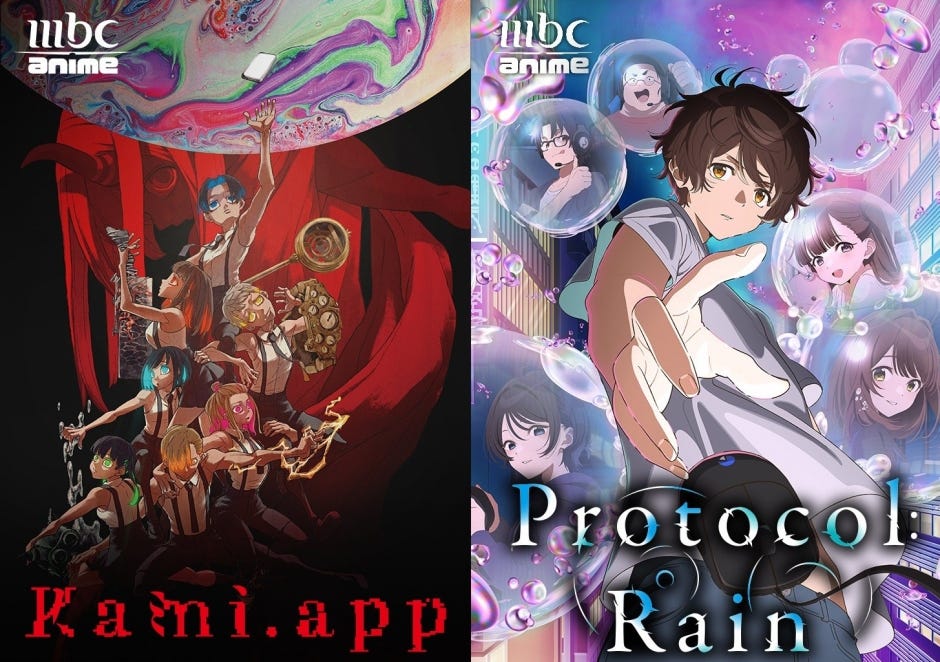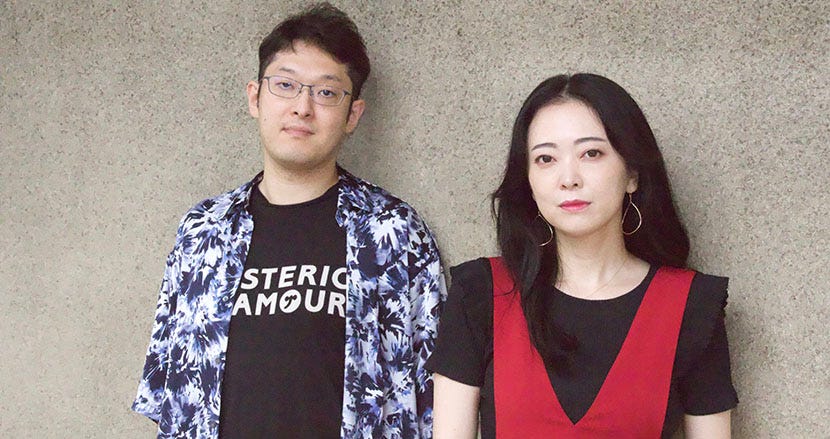Anime tourism grows as visitors return to Japan
Plus: Experimenting with NFTs in manga businesses; Saudi media group invests in anime production committees; Contracts in anime voice acting; and more
This is your weekly Animenomics briefing, covering the business of anime and manga. Today is Wednesday, October 25, 2023.
In case you missed it: Crunchyroll is launching a 24-hour anime television channel for several free, ad-supported over-the-top services to attract “anime-curious” audiences.
Public–private partnerships promote anime tourism

Six months after Japan lifted its last remaining COVID-19 travel restrictions for international tourists, some tourism sites around the country are promoting their ties to anime and manga while others are struggling with overtourism.
Why it matters: International arrivals into Japan rose in September to 96 percent of levels seen during the same period in 2019, signaling a return to pre-pandemic norms.
At the same time, Japanese officials want to reduce the concentration of tourists in popular cities like Tokyo, Osaka, and Kyoto.
On the ground: The Anime Tourism Association, a public–private partnership of businesses and local governments, is among those promoting anime “pilgrimage sites” around the country.
The association is holding its annual fan survey through the end of October to select the 2024 edition of Japan’s top 88 anime tourism sites.
U.S. mobile payment company Square, which entered the Japanese market in May, is also promoting its payment gateway products and services to small businesses located near such pilgrimage sites.
Zoom in: A hot spring resort town in Kanazawa, Ishikawa prefecture, is one tourism destination that is seeking to balance the needs of visitors and locals.
Yuwaku Onsen is home to the Yuwaku Bonbori Festival, an annual event begun in 2011 in honor of the anime Hanasaku Iroha, whose setting is modeled after the town.
Festival-goers were restricted for the second year in a row to overnight guests, ticket purchasers, and individual sponsors to prevent overtourism, the local business association told The Hokkoku Shimbun newspaper.
While the festival drew more than 15,000 people annually before the pandemic, this year’s edition was capped at 3,000 visitors.
Zoom out: Anime-driven tourism was a popular topic at this month’s Cool Japan DX Summit, which held a panel discussion on the subject.
Anime journalist Yumiko Watanabe highlights a pre-pandemic survey by the travel agency AirTrip that showed female travelers were more likely to visit locations featured in anime, films, and other entertainment works.
Noritaka Emoto, a writer and editor of travel guides for JTB Publishing, gave the example of the seaside city of Numazu, Shizuoka prefecture, a poster child of anime tourism for embracing its association with Love Live! Sunshine!!
Yes, but: Anime mecca researcher Ebisu, who uses a pseudonym, points out that anime pilgrimage sites are faced with the challenge of turning their new visitors into returning regulars that invest in the local community.
Media Do showcases NFT business for books, manga

At the presentation of Media Do’s second quarter financial results for the fiscal year ending February 2023, the e-book and digital manga distributor provided an example of how anime and manga businesses continue experimenting with NFTs, or non-fungible tokens.
Why it matters: While global interest and publicity around NFTs remain low after the cryptocurrency market collapsed last year, Japan is one market where NFT projects are still doing well.
The details: Media Do’s FanTop subsidiary acquires licensed digital content and attaches them to books as NFT benefits, allowing publishers to upsell the product.
By the numbers: The company says attaching NFT bonuses increases the sticker value of books by an average of 41 percent.
For one particular manga release, last year’s 30th anniversary volume of The Kindaichi Case Files, the NFT-bundled limited edition had sticker price that was more than double that of the standard edition.
What they’re saying: “NFT businesses around the world generally deal with art rather than content like copyrighted works. Taking advantage of the position of trust we have cultivated in the publishing industry, we develop authentic licensed content, rather than art and user-generated content posted by individuals,” Media Do chief executive officer Yasushi Fujita told investors.
Fujita also told The Japan Times last year that NFTs based on licensed content will provide royalties to creators when those tokens are sold in the secondhand market.
Yes, but: Media Do chief financial officer Hiroshi Kanda told investors that while FanTop aims for profitability within the next four to five years, the business is still seeing a deficit of several hundred million yen (several million U.S. dollars).
There are four avenues in FanTop’s path to profitability says Fujita: the QR code issuance fee for the digital token, the higher sticker value of the book, the fee paid by publishers to FanTop for producing the token, and usage fees for FanTop’s NFT marketplace.
Clippings: Saudi group invests in anime production

Saudi media conglomerate MBC Group, in cooperation with Tokyopop made its first anime investments by joining the production committees of KamiErabi and Protocol: Rain, both airing starting this month. (Animation Business Journal)
Until now, anime titles distributed in the Middle East have often been sublicensed by European and North American companies that have acquired global licenses from Japanese producers.
Manga grows popular among students, according a survey of librarians at U.S. schools and youth public libraries. Manga titles today make up 43 percent of high school graphic novel purchases. (School Library Journal)
Yes, but: Stocking manga, especially long-running titles, in libraries comes with its own challenges, Anime Herald reported last month.
Shueisha’s Jump Toon webtoon service has announced winners of its first Jump Toon Award, with Kohei Kato winning the grand prize of ¥1 million (US$6,700) and a webtoon serialization contract for his fantasy title Million Dead. (Jump Toon)
Lawyer: More scrutiny needed in voice actor contracts
An oversupply of anime voice talent is disrupting the power balance between actors and their agencies, leading to unfair contracts that put voice actors at the mercy of agencies’ decisions.
Driving the story: Kensuke Sadanaga, a lawyer who consults for video game and anime production companies, told voice actor Atsuko Enomoto in an interview that the freelance status of many voice talents today makes having solid contracts a necessity when working with agencies.
Backgrounder: There are generally three types of contracts between voice actors and agencies, says Sadanaga.
The first is an employment contract, where the actor is directly employed by the agency and receives a fixed salary, but this contract type is rare.
A second, more common type is the management contract, where the actor acts as outsourced labor. Agencies receive work requests and subcontracts the work out to voice actors, paying them by the job with incentives.
The final, most common contract is the agent contract. In this scenario, the actor acts as an independent business, and a business partnership is formed between the talent and the agency, with the agency taking a certain margin from the payment for the actor’s work.
Reality check: It’s often considered taboo for voice actors to ask about money to their agencies, says Enomoto, so details are often glossed over when discussing a contract.
On the other hand, Sadanaga believes it’s in the agency’s best interest to be transparent about contracts so be able to retain their voice actors.
One thing in common: An area where Sadanaga and Enomoto draw parallels in their fields is the use of calendar holds.
Lawyers use calendar holds to accommodate court scheduling arrangements, and voice actors may be asked to hold certain dates in the future for dubbing sessions for an anime series.
However, voice actors are often required to block off their calendars even if they don’t appear on all of the anime’s episodes. This prevents them from making personal plans or taking on other work.
Animenomics is an independently-run and reader-supported publication. If you enjoy this newsletter, consider sharing it with others.



